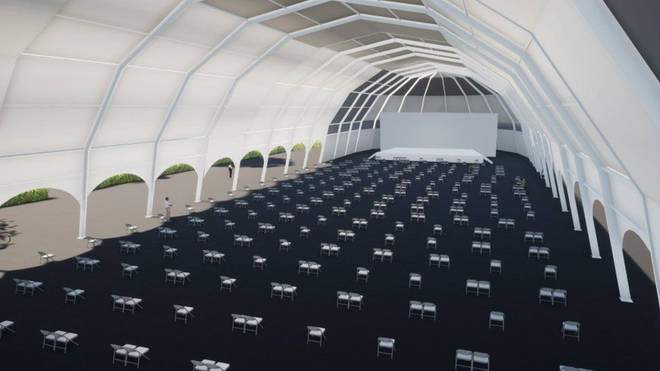Back to Abnormal at the Edinburgh Festivals

Professor Joe Goldblatt
One of the former directors of the five summer Edinburgh Festivals was asked “Why are audiences so very slowly returning to our world class events?” He responded by positing that for many festivals with whom he now consults, only 18 percent of the audience has actually returned. He then added soberly “The difference between September 11, 2001 and the economic crisis of 2007 has been the second wave of the pandemic. The second wave of the pandemic struck further and deeper fear into the hearts of the audience.”
I recognised this fear and also witnessed several profound seeds of hope when I attended the test concert produced by the Edinburgh International Festival and the opening programme for the Edinburgh International Book Festival. My observation of the audience that has chosen to be early adopters is that they are younger, delighted to participate in these new reimagined events and perhaps they are one of the future keys to the sustainable success for all of the festivals. However, fewer seats are still being filled due to social distancing and the overall reticence of the audience.
After all, in 1947 when Sir Rudolf Bing imagined transforming Scotland’s capital city into a dynamic platform for the flowering of the human spirit the society in which he chose to conduct this experiment was far from what would be considered normal. Bing, the Lord Provost of Edinburgh and the citizens of Edinburgh pledged that even amidst the recent destruction of World War II that they would work together to try something that would result in a new cultural norm for Europe and later the entire world. This grand experiment resulted in motivating thousands of artists and millions of audience members to discover the Edinburgh festivals over and over again for seventy four years.
In the field of tourism there is a well known motivational typology of visitors that includes escape, relaxation, strengthening family togetherness, wish and self-fulfilment, prestige, shopping, social interaction and other motivators. The future of the Edinburgh festivals certainly may provide a myriad of opportunities to satisfy each of these motivations. The question for our current and future festival makers is how do they design and deliver these opportunities in a way that will gently remove the deep fear that some festival goers still hold in their hearts and motivate them to return?
Tourists and audience members of the Edinburgh Festivals may also be classified by five well established psychographic variables ranging from psychocentric, near psychocentric, mid-centric, near allocentric, and allocentric. The allocentric tourist / audience member fears adventure whilst the allocentric individual relishes new experiences. Currently, due to the global pandemic and the additional waves that have emerged, we have many more individuals who are on the psychocentric and near psychocentric end of the scale. We must motivate them to move toward allocentrism if our festivals are to prosper and grow.
I believe the best way to do this is not necessarily to build back better, rather, it is time to journey toward the new abnormal. The new abnormal will require our festival makers to engage more closely with their audiences in terms of researching, developing, curating and delivering the type of programming that will offer a unique selling proposition for individuals to be motivated to attend both face to face and online events.
The new abonormal will also require our festival makers to re – examine the negative environmental impacts of international airline travel regarding their future events. International tourists historically have been important economic contributors for the Edinburgh festivals. The international tourist stays longer and spends more than domestic tourists and therefore, they are extremely valuable to the destinations where they visit.
The Edinburgh International Festival and the Edinburgh International Book Festival both have announced plans to address the issue of international travel related to their artists and authors and now the new abnormal requires them to also re – think the composition of their future audiences and also how to distribute our festivals content throughout the world through accelerated hybrid approaches that greatly expand the festivals foot prints without negatively impacting the planet.
In order for our cultural crown jewels, in what is widely recognised as the festival capital of the world, to grow in the future from strength to strength, we must find new ways that many would consider to be abnormal following a successful run of almost three quarters of a century.
However, unless we collectively work together to remove the fear that is still in the hearts of some audience members, what we once considered normal may be in fact detrimental to our future. Therefore, we must now strive even harder to move toward something abnormal in order to create a sustainable future for our creative community and their future audience.
Professor Joe Goldblatt is Emeritus Professor of Planned Events at Queen Margaret University and is the author, co – author and editor of forty books in the field of events management To read more about his views regarding the Edinburgh Festivals visit www.joegoldblatt.scot
